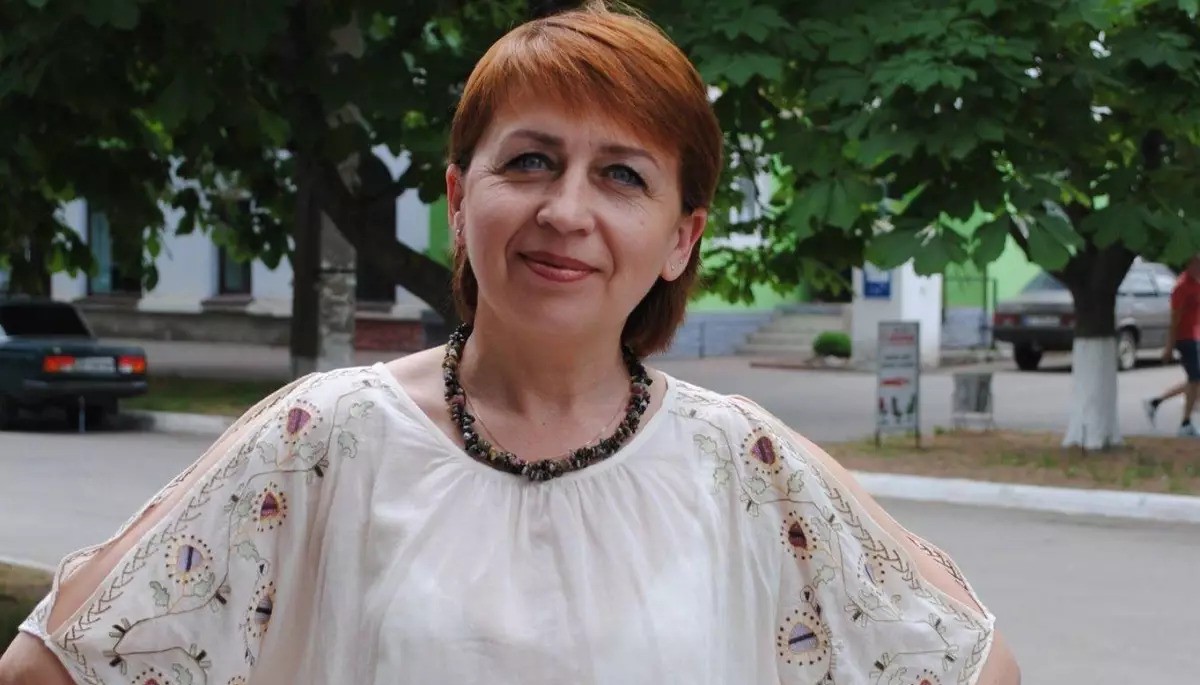The IPI global network today condemns the detention of journalist Zhanna Kyselova, the former editor of local newspaper Kakhovska Zorya, by Russian occupying authorities in Ukraine’s Kherson region. Kyselova’s detention is a renewed reminder of the dire situation faced by dozens of Ukrainian journalists held in Russian captivity.
According to Ukrainian authorities, Kyselova was detained at her apartment in the city of Kakhovka on June 27. Russian occupying authorities did not communicate on the charges formulated against her. Her current place of detention also remains unknown.
Ukrainian media reported that this was not the first time Kyselova was arrested by Russian authorities since the occupation of her hometown of Kakhovka, at the start of Russia’s full-scale invasion of Ukraine. In September 2022, the journalist spent several weeks “in a basement”, Ukrainian sources reported, using a common term for unofficial places of detention and torture. She was released in October of the same year, in unclear conditions.
The reasons which pushed Russian authorities to detain her the first time, as well as what led to her new detention, are also unclear. Kyselova was not known to have engaged in journalistic activities since the occupation of Kakhovka, with local media pointing to the fact that the Facebook page of Kakhovska Zorya had not been updated since March 18, 2022. Local sources also reported that following the occupation of Kakhovka, Russian authorities began distributing a newspaper under the same title, translated into Russian as Kakhovskaya Zarya, which presumably published news in line with Russian propaganda narratives.
In reaction to the news on Kyselova’s detention, Ukrainian prosecutors in Kherson region opened a criminal case for “violation of laws and customs of war” by Russian forces. The regional prosecutor’s office added that the local branch of Ukraine’s State Security Service (SBU) was still investigating the journalist’s initial arrest in 2022.
“The illegal detention of Zhanna Kyselova comes as a reminder of the dire situation faced by the dozens of Ukrainian journalists currently in Russian captivity,” said IPI Interim Executive Director Scott Griffen. “According to Ukrainian human rights defenders, at least 30 Ukrainian media workers are currently in this situation. In most cases, the conditions of their detention are unclear, as are the perspectives for their release. This is especially the case for journalists detained in regions of Ukraine recently occupied by Russia, such as Kherson and Zaporizhia, where even the most rudimentary schemes guaranteeing basic rights of inmates are typically not applied.”
He added: “In this context, IPI demands efforts by the international community pushing Russia to release Zhanna Kyselova and all other detained Ukrainian journalists. We call on Russia to comply with international norms and communicate on the conditions of their detention, the charges they face, as well as guarantee their access to lawyers and families.”
Kyselova’s arrest comes weeks after Russian authorities at last admitted to the arrest of Ukrainian journalist Victoria Roshchyna, who had gone missing while reporting from Russian-occupied territory in August 2023. This came after months of silence, during which Roshchyna’s family and colleagues were not able to confirm whether the journalist was still alive.
The family of Dmytro Khyliuk, a correspondent for Ukrainian press agency UNIAN, faced a similar situation for months after his detention in northern Ukraine, at the start of Russia’s full-scale invasion. Over the next two years, the journalist’s family received only scant information related to his detention, with the charges formulated against him as well as his whereabouts still unclear.
In 2023, Russian forces also arrested several inhabitants of the occupied city of Melitopol, who were accused of writing for the Telegram channel RIA Melitopol, an underground media which provided independent reporting on the situation in the city, despite the risk of repression under Russia’s strict laws enabling military censorship.
Ukrainian authorities recognize Dmytro Khyliuk, Victoria Roshchyna and other Ukrainian journalists detained by Russian forces as civilian hostages. However, while prisoner of war exchanges regularly take place between Ukraine and Russia, no such procedure has yet been put in place for civilians. As a result, the prospects for the release of journalists and other civilians detained by Russian authorities are highly uncertain.
